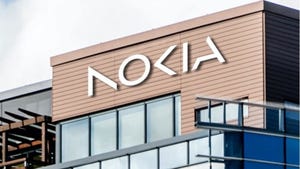A long-rumoured piece of major British telecoms market consolidation is on the cards, with the UK arms of Vodafone and Three confirmed to be in merger discussions.
October 3, 2022

A long-rumoured piece of major British telecoms market consolidation is on the cards, with the UK arms of Vodafone and Three confirmed to be in merger discussions.
Vodafone issued one of those ‘notes recent press speculation’ announcements today, apparently in response to a Sky News story. ‘Vodafone confirms that it is in discussions with CK Hutchison in relation to a possible combination of Vodafone UK and Three UK,’ it opened.
The plan is for Vodafone to own 51% of the combined entity and, since Vodafone UK is presumably worth a fair bit more than Three, some reconciliation would surely be required. ‘The relative ownership would be achieved through a differential leverage contribution at closing, and no cash consideration will be paid,’ says the announcement. We’re not really sure what that means, but leverage often refers to debt.
The rest of the press release is spent effectively lobbying UK regulators and competition authorities not to block any such move. It notes that Ofcom itself has acknowledged that Vodafone and Three lack the scale of their main competitors which, let’s not forget, are the product of similar mergers themselves.
‘The merged business would challenge the two already consolidated players for all UK customers and bring benefits through competitively priced access to a third reliable, high quality, and secure 5G network throughout the UK,’ it insists.
“There are few big strategic moves left in the UK,” said Paolo Pescatore, Analyst at PP Foresight. “Remaining players including TalkTalk, Three and Vodafone are all in a challenging position given the growing importance of convergence. While Vodafone is addressing this through wholesale agreements in the fixed line market, it is unclear whether a merger with Three UK is the silver bullet.”
“Not so long ago, a tie-up between Vodafone and Three would have felt like an unnatural pairing,” said Kester Mann, Analyst at CCS Insight. “But in recent times, Vodafone has taken on more of a challenger role in its home market, so the two operators’ strategies may no longer be too far apart.”
On the surface it would seem only fair for this move to be allowed after the BT/EE and VMO2 ones were but each piece of major M&A has its own unique considerations. The most obvious one here is that it proposes the merger of two mobile operators, which the other two were primarily the combination of a mobile with a fixed-line player. In this case that would mean the reduction of the number of MNOs to three (ironically), something competition authorities have historically resisted.
But post-Brexit Britain seems to be geared to wards economic growth first and foremost, so this could be the politically optimal moment to try such a move. However, as James Robinson of regulatory specialist Assembly Research notes, there are still plenty of other potential objections to be overcome before it would be given the green light.
“Aside from creating a new mobile market leader, a combined Three/Vodafone would boast a significant proportion of 5G spectrum in the 3.4-3.8GHz range,” said Robinson. “While spectrum was not one of the EC’s primary reasons for blocking O2/Three, mid-band (i.e. 1-6GHz) is a priority 5G range and may lead the CMA to consider the balance in assignments between operators and potential divestment options.
“The CMA and EC have previously determined that having an operator involved in both UK network sharing arrangements could weaken competition and facilitate information exchange. Similar concerns would likely emerge in a Three/Vodafone merger but may be easier to overcome given that the agreements are less integral to operators’ 5G rollouts and MBNL is set to expire in 2031.
“While the parties might view consolidation as a way to improve returns and unlock shareholder value, we expect the CMA would be eager to protect against the risk of consumer price rises – particularly in light of the current cost of living crisis. We would therefore expect this issue to be the most contentious point within a Three/Vodafone merger, and would potentially require legally-binding concessions.”
Our initial feeling is that, with the right concessions, reassurances, etc, this potential deal should be approved. The resulting company would be in a stronger network investment position and would still have two strong MNO competitors to keep it honest. Vodafone has been flyingtrial balloons for a while and brought in a seasoned M&A veteran to its board, so presumably fancies the chances of this deal going though if the details can be agreed with CK Hutchison.
Get the latest news straight to your inbox. Register for the Telecoms.com newsletter here.
About the Author(s)
You May Also Like








.png?width=300&auto=webp&quality=80&disable=upscale)


_1.jpg?width=300&auto=webp&quality=80&disable=upscale)


.png?width=800&auto=webp&quality=80&disable=upscale)